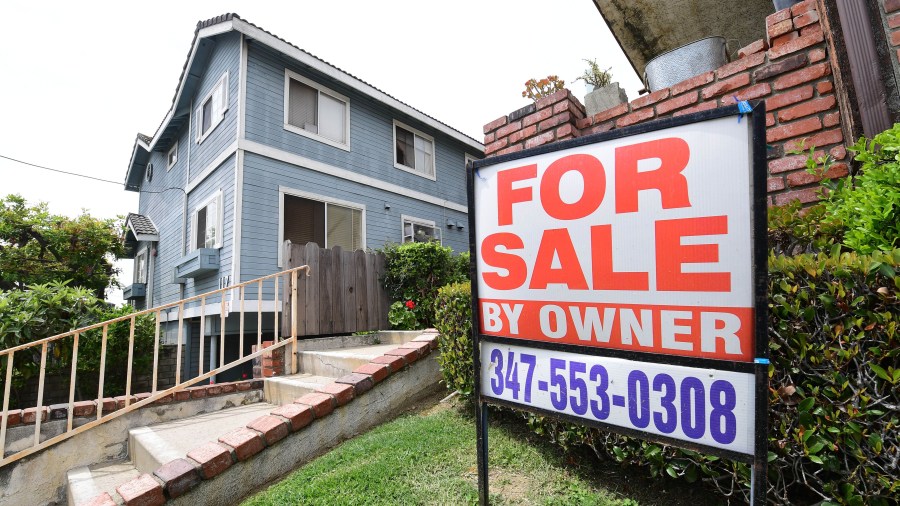Real estate disruptors got disrupted by COVID-19

In a growing number of cities, if you want to sell your house you can get an instant offer from tech-enabled companies known as iBuyers. If you accept, the company may fix up the house a bit, then turn around and sell it within a few months for a tidy profit.
Amid the pandemic, the four biggest iBuyers — Opendoor, Zillow, Offerpad and Redfin — all temporarily stopped buying houses in March. In some cases, they had to back out of deals and lay off staff. But now, iBuyers are starting to come back. I spoke with Mike DelPrete, who has been following this corner of the market. He’s a scholar-in-residence at the Leeds School of Business at the University of Colorado Boulder. The following is an edited transcript of our conversation.

Mike DelPrete: Fundamentally, iBuying transfers the risk of selling one’s home from the homeowner to the iBuyer, and somebody needs to pay for that. That’s typically the fee that an iBuyer charges. Before the pandemic, the average fee an iBuyer would charge is around 7%. But now the question is, well jeez, the risk is increased. Are consumers willing to pay 10% to 12% for the ability to sell their home in this environment? I think that’s one of the big questions that they’re going to look at.
Amy Scott: Some housing analysts are expecting home prices to fall this year. What does that mean for this model if these companies can’t buy a house and turn around and sell it at a profit?
DelPrete: Typically, an iBuyer will hold the home for about 90 days, so it’s a pretty quick turn. I think the loss [from] depreciation will be relatively small, but it just goes to the question of fees. If they’re going to lose money on that, they have to make money somewhere. It’s just going to mean they’re going to have to charge higher fees.
Scott: Do you see all the iBuyers surviving?
DelPrete: I think the iBuyer model will survive. I’m not quite sure if all of the iBuyers will. There’s only a very small number of serious iBuyers out there. Zillow, Opendoor, Offerpad—they’re not little, scrappy startups that don’t have a lot of capital. There’s a very small number of big, well-capitalized companies here. I think they have the runway to get through this. It’s just what the future holds, and that’s a bit uncertain at this point.
Scott: How has the pandemic changed the way they actually do business in terms of buying and selling, which has been made harder by social distancing requirements?
DelPrete: The social distancing requirements are actually this unintended advantage of the iBuying model. They can enable consumers to transact the house without interacting with somebody else. If you want to buy a home from an iBuyer, because they own those homes, they’re empty. You can go visit them, you can tour it on your own. You don’t even have to go with a real estate agent. That’s an activity that only iBuyers can facilitate just by the nature of their model. The new programs the iBuyers are rolling out, they’re all about doubling down on that unique competitive advantage they have.
Scott: When you and I have talked before, I think we’ve both been surprised how much people are willing to pay or give up in terms of profit on their home for convenience and for the certainty of making a sale. How do you think that equation changes in a down economy?
DelPrete: I think that the appeal is still there. If you need to move, and you’re in a cool market where you don’t know how long it’s going to take to sell your home, the appeal of going to an iBuyer is quite strong. I think folks would be willing to pay for that. If that fee gets up there too high, it does feel a little bit anti-consumer. That’s the billion-dollar question: what will consumers be willing to pay for that convenience and certainty in a post-pandemic world?

Related links: More insight from Amy Scott
If you’re wondering who gives up potentially thousands of dollars to sell to an iBuyer, a common theme is avoiding the hassle of getting out of the house for showings, dealing with renovations and cleaning up pet damage. One thing I’ve been thinking about is how all this staying at home is changing what we want in our homes, besides getting a different one. In a survey from Realtor.com, more space and better kitchens naturally topped the list. Also, up the list was more or better technology, such as smart-home features and faster Wi-Fi.
Now that companies like Twitter are saying some workers may never have to go back to the office, could that change where people want to live? Bloomberg has been reporting on this. After all, why pay more than $3,000 a month for a Silicon Valley one-bedroom when you could rent a whole house for half that in, say, Baltimore?
The future of this podcast starts with you.
Every day, the “Marketplace Tech” team demystifies the digital economy with stories that explore more than just Big Tech. We’re committed to covering topics that matter to you and the world around us, diving deep into how technology intersects with climate change, inequity, and disinformation.
As part of a nonprofit newsroom, we’re counting on listeners like you to keep this public service paywall-free and available to all.
Support “Marketplace Tech” in any amount today and become a partner in our mission.












